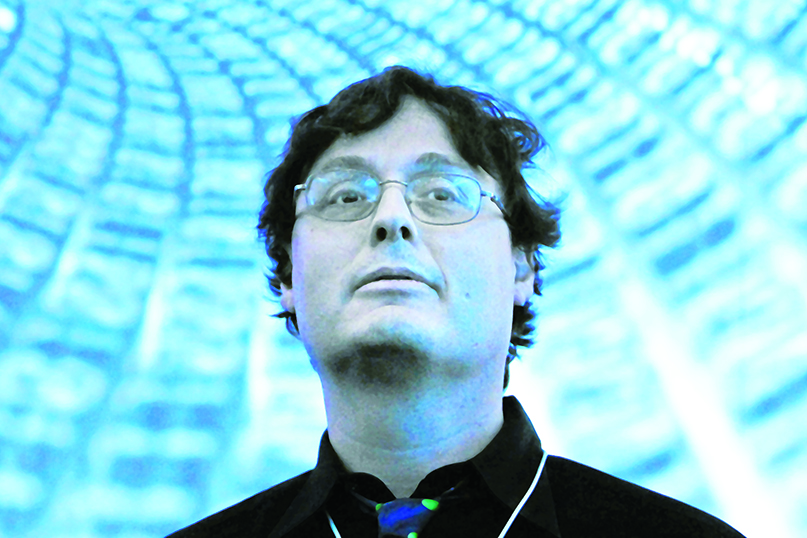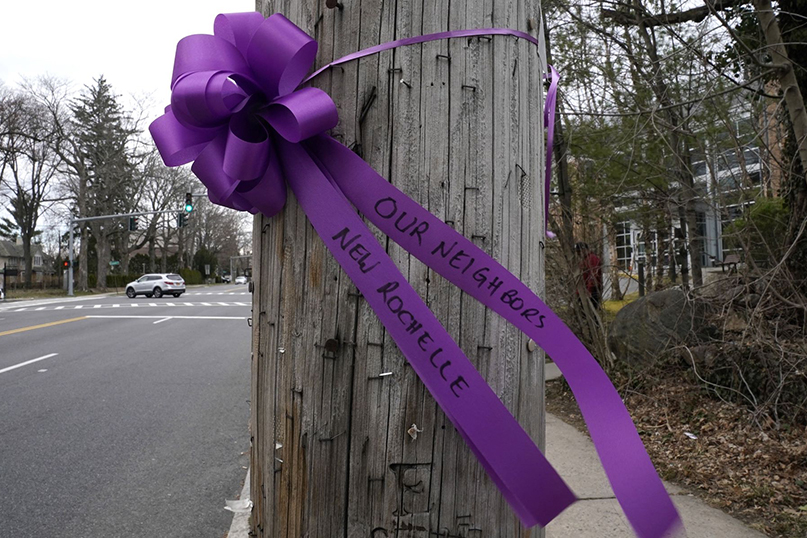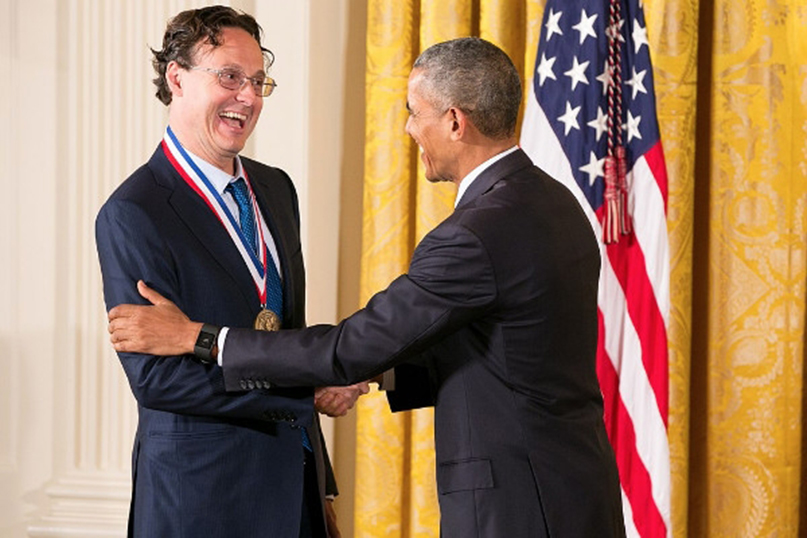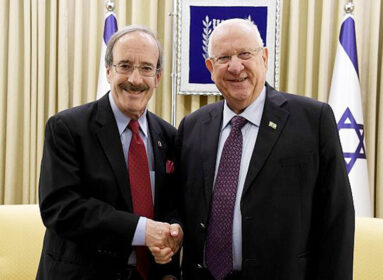
As COVID-19 spreads, American Jews experience Shabbat like no other
By Ben Harris and Josefin Dolsten
(JTA) – As COVID-19 continued to spread last week, an ever-widening circle of Jewish communities braced themselves for a Shabbat unlike any other. From New York to Chicago to Dallas and beyond – including several synagogues throughout Connecticut – a cascade of congregations cancelled services and other public gatherings as the Jewish Sabbath drew near.
In non-Orthodox communities, many synagogues chose to move their Shabbat prayers online – something that would have been unthinkable just a week ago. In Orthodox communities, where the use of electronics is strictly prohibited on Shabbat, growing numbers of synagogues made the equally unprecedented decision to cancel services entirely. Across all communities, meals and other gatherings that are typical on Shabbat have been called off.

Like many synagogues, those in Connecticut that ultimately closed were hopeful that they could remain open at least for services, while canceling other events deemed less central to religious life. But as the weekend drew near, and after consulting with local officials, the synagogue decided even that was not a risk they could take.
Concerned that synagogues were letting that reticence impede efforts to protect communal health, Rabbi Robert Harris, a professor at the Jewish Theological Seminary, posted an urgent appeal on Facebook Thursday, March 12. Invoking the Jewish principle of pikuach nefesh, the idea that the imperative of protecting human life overrides all other religious considerations, Harris urged rabbis of all denominations to issue a temporary decree permitting the streaming of religious services.
“I was concerned the day before yesterday,” Harris told JTA. ”My understanding was that certain rabbis and synagogues were considering keeping their congregations open and I was alarmed at that because I thought that the reasons that they were hesitating were not in keeping with the primacy of pikuach nefesh, of preserving human life over other considerations which are ritual, meaning the observance of Shabbat.”
Some of the American Jewish communities most deeply affected by the virus remain in the greater New York City area, where Jewish individuals were among the first confirmed cases of the disease and some schools and synagogues have already been shuttered for a week.
In northern New Jersey, the Rabbinical Council of Bergen County adopted some of the most sweeping measures to contain the spread of the disease last Thursday when it ordered all synagogues to be shut down and forbade Shabbat gatherings in people’s homes – a mainstay of religious life for countless Jews in the area. (Since then, the mayor of the township urged all 40,000 residents of Teaneck to self-quarantine.)
But communities across the country are taking similar steps. At the Young Israel of West Hartford, in central Connecticut, all synagogue classes were moved online and the daily prayer service was moved from the basement to the larger sanctuary upstairs to allow for more distance between worshippers. In Skokie, Illinois, coronavirus cases confirmed Friday morning caused synagogue activities that remained on the schedule to be called off. A statewide closure of houses of worship in Kentucky meant no Jewish communities would convene there.
“I think it’s on everyone’s mind,” said Tuvia Brander, the rabbi of Young Israel. “I think we’re all trying to take this very seriously and do that in a way that’s responsible and driven by knowledge and information from medical professionals, local health and government leaders.”
One synagogue that held a particularly fraught meeting this week was Congregation Beit Simchat Torah in Manhattan, which faced an acute dilemma – Naomi Springer-Galst was due to celebrate her bat mitzvah at the synagogue on Saturday morning.
On Thursday, the LGBTQ-friendly synagogue announced that it would still hold services, but asked only close family and friends to attend in person. Everyone else was invited to follow along on a Facebook livestream.
“Our synagogue has been through a plague before – 40% of our congregation in the AIDS crisis,” Kleinbaum said. “I know what it takes to survive as a community through terrible loss, and resiliency and joy and spirituality is center to it. I know what my job is and I feel a deep sense of faith – not that everything is going to be OK, because I know how horrific the world could be, but a deep sense of faith that people can find great wisdom and learn deep things and reveal God’s presence even in these terrible times.”
Is help on its way?
Guilford scientist/entrepreneur is in the midst of developing a home test for COVID-19
By Stacey Dresner
GUILFORD – Dr. Jonathan Rothberg, a chemical and biomedical engineer/entrepreneur in Guilford, could create the first home test for COVID-19.
Just in the past two weeks, as the United States began finally waking up to the seriousness of the coronavirus and the country’s pitiable shortage of tests to diagnose the illness, Rothberg and his team of scientists at 4Catalyzer, a medical device incubator, have been hard at work trying to develop a home test that will be as simple to use as an at-home pregnancy test.
“Developing simple #Coronavirus test for at home-think pregnancy test…Progress today shows we can do it in many steps without equipment, and now we simplify, so it’s spit, wait, read results,” Rothberg tweeted on March 14.
Providing quicker and more cost-effective medical devices has long been one of Rothberg’s goals. The founder of several life science and medical device companies, his mission is clearly stated on his website home page. “We democratize medicine,” it reads.
Rothberg’s aim is to make healthcare accessible to everyone around the world.

His company, Butterfly Network, built the first “ultrasound-on-a-chip,” a pocket-sized ultrasound wand for less than $2,000, making it much more accessible to healthcare providers all over the world. Investors in Butterfly Network’s $250 million research and development of the ultrasound wand include the Bill and Melinda Gates Foundation.
He also developed a portable MRI machine for $50,000 – much less than the more than $1 million of conventional MRI machines.
In 2016., Rothberg was awarded the 2015 National Medal of Technology and Innovation by President Barack Obama for his work in next-generation sequencing – a high-speed, low-cost method of decoding individual genomes. The Medal is the nation’s highest honor for technological achievement, bestowed by the president on American’s leading innovators.
Using next-gen sequencing, Rothberg’s companies have also, among many other things, decoded the Neanderthal Genome; helped to explain the disappearance of the honeybee; and developed new drugs for breast cancer.
Born in New Haven in 1963, Rothberg earned a B.S. in chemical engineering from Carnegie Mellon University and an M.S., MPhil, and Ph.D. in biology from Yale University and holds an Honorary Doctorate of Science from Mount Sinai School of Medicine. He is a member of the National Academy of Engineering, and the Connecticut Academy of Science and Engineering. He is also a life trustee of Carnegie Mellon University and an adjunct professor of genetics at Yale School of Medicine.
He lives in Guilford with his wife, Bonnie, a physician, and their five children.
At press time, Rothberg was tweeting updates on the COVID-19 outbreak and commending his team of scientists as well as other doctors and scientists for their hard work and dedication, sending out loving and positive vibes to all within the Twitter-verse.
“During these times you realize how blessed you are to be able to help in your own way,” Rothberg tweeted on March 13. “I work with the smartest, most caring, people on the planet. @4Catalyzer and we happen to be lucky that we can all do something to help the people that need it most.”
Jewish organizations rally behind Italian Jews in wake of COVID-19 shutdown
(Israel Hayom) Amid the coronavirus crisis in Italy, which has brought the country to a virtual standstill, Jewish Agency Chairman Isaac Herzog and Keren Hayesod Chairman Sam Grundwerg met on Thursday, March 12, with Jewish leaders in Rome and Milan, saying in a statement, “The community leaders described the challenges and threats they are facing, and their immediate needs. Italy, which is currently on lockdown, has been particularly hit hard [by COVID-19] and is experiencing a death toll of hundreds of people.” With a population of some 15,000, Rome is home to the oldest Jewish community in the world.
The president of Rome’s Jewish community, Ruth Durgello, called crisis “the worst situation we have faced since World War II.” “We are in a state of complete uncertainty. … General morale is very low. We know there is light at the end of the tunnel, but we don’t know how long the tunnel is,” she said. President of Milan’s Jewish community, Milo Hasbani, added: “Our schools and nursing homes have been shut for three weeks. We are organizing various support channels to help community members, especially elderly people who are in quarantine and can’t go food shopping. We are setting up distance learning for the children, investing in disinfectants and preparing the community’s security team for any scenario.”
“Expressing solidarity with Jews around the world and Italian Jewry in particular, Herzog and Grundwerg penned a letter stating that ‘All of Israel is responsible for one another,’ and that the organizations are teaming up to pledge their support during this difficult time,” the Jewish Agency statement read.
Herzog said, “We have set up a special team to immediately analyze their most urgent needs, and together with Keren Hayesod we will work to help the community as quickly as possible. I urge our parallel Jewish organizations and Jewish communities worldwide to mobilize, given the extent of the need.” The Jewish Agency said that it was “working on assisting the community on three levels to meet their needs: assisting nursing homes; setting up distance-learning infrastructure for children and teachers who are quarantined; and helping the communities set up a hotline to help those in quarantine.”
A special team led by Shay Felber, director of the Jewish Agency’s Unit for Aliyah, Absorption and Special Operations, and Alex Kerner, Karen Hayesod’s emissary in Italy, will focus on provisions.
“It is always comforting to know that Israel is with us,” said Hasbani, “and especially the Jewish Agency and the assistance it provides.”







 Southern New England Jewish Ledger
Southern New England Jewish Ledger













